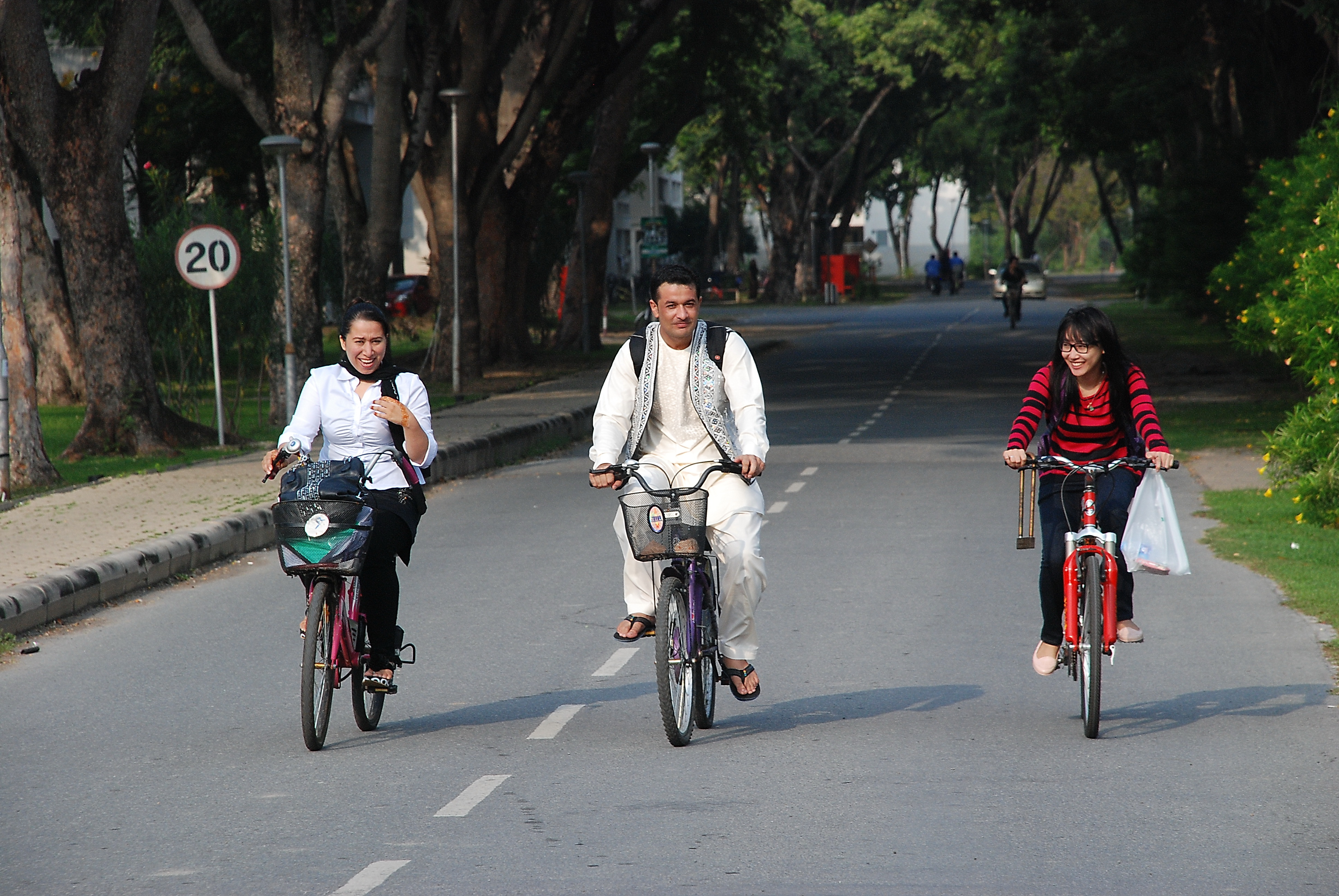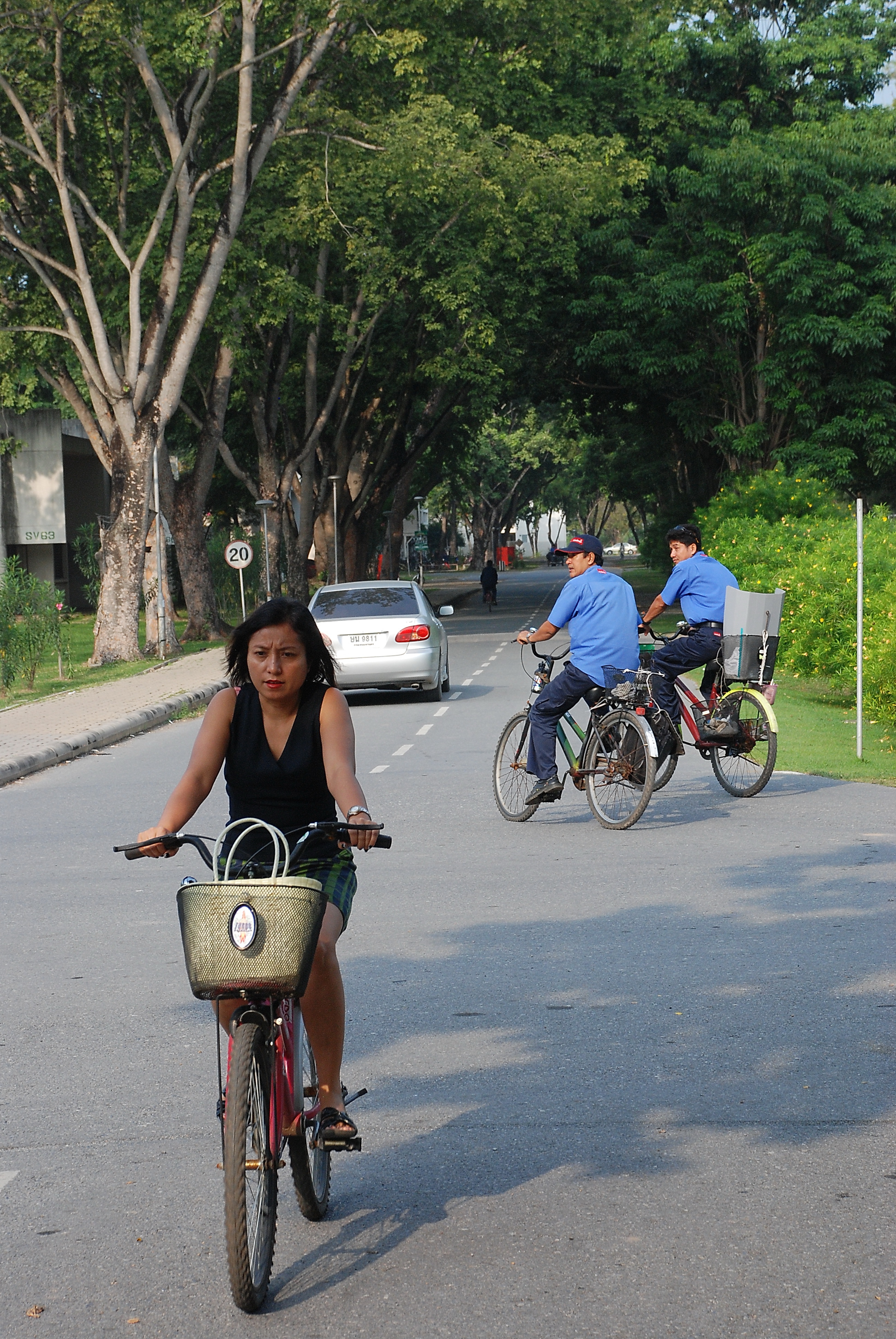By Ridwan Quaium
Some of the features of the modern day bicycle-friendly campuses
include bicycle lanes, paths, trails, stands, pump stations and repair
shops. In addition, some of the internal roadways are closed down for
through traffic and opened up for pedestrians and bicycles only.
Furthermore, external traffic is generally prohibited from traveling
inside the campus periphery.
The campus of the Asian Institute of Technology (AIT) in Pathumthani
Province is undoubtedly one of the most bicycle-friendly campuses
around. More than 90 percent of AITians mentioned in a poll that they
commute within the AIT campus by cycling, while more than 95 percent of
respondents believe that the campus is safe for cycling and that they
enjoy cycling on campus.
At this green institute on Bangkok’s northern edge, sustainable
transportation is not only a course title or a research topic – it is a
real-life everyday reality for its students, faculty and staff. Ahead
of its time, perhaps, the campus has been ‘bicycle-friendly’ for at
least three decades or more.
The AIT campus is very different from any other university campus in
the Thailand as unlike other schools the bicycle is the main mode of
transportation to commute within institute’s boundaries. In fact, the
AIT campus may be one of the most bicycle-friendly campuses in the
world.
Even the children of the students, staff and faculty ride bicycles.
Almost everyone has access to a bicycle. Though some students may
arrive at AIT not knowing how to cycle, they quickly get a bike and
enjoy the benefits of being mobile.
That’s because the compact layout is conducive to peddling. On
average, one may have to cycle for only a few minutes to reach any
destination. And though the climate in Thailand is generally hot and
humid, the tree-lined roadways, and covered walkways that connect many
of the dormitories and academic buildings, provide a comfortable and
pleasant cycling experience.
For the convenience of cyclists, bicycle stands are located in front
of every building on campus. A cycle repair shop can also be found on
the campus premises, which also sells used and new bicycles apart from
providing bicycle repair services.
Furthermore, the campus is also relatively isolated, and has only one
entry and exit point, thereby eliminating outsiders and trespassers
from entering the campus seeking a shortcut route. The majority of
students, staff and faculty reside within the campus. For the staff and
faculty who live off-campus, many tend to commute to AIT using the
university inter-city bus service.
This is why vehicular traffic inside the confines of AIT is quite low
compared to other universities. The low traffic volume also reduces the
chance of accidents. Speed bumps located at regular intervals enforce
the low speed limit of 20 km/hr., making it safe for pedestrians and
cyclists.
One of the most unique features of this campus is that unlike most
other university campuses in Thailand, at AIT, motorcycles, which have
been proven to be one of the most unsafe and reckless modes of
transportation, are prohibited from entering at the main gates.
AIT does not have any designated bicycle lanes. But due to the low
amount of vehicular traffic and the low speed limits, cyclists are able
to ride safely alongside vehicular traffic on the roadways without any
safety issues. In fact, there has hardly been any vehicle to cyclist
collision in the history of the campus.
The bicycle-friendly AIT campus enables AITians to attain a healthy
lifestyle. After entering the AIT campus, one will immediately feel the
calmness, coolness and greenness of the campus, which has been made
possible due to the high amount of bicycle ridership and low amount of
motorized vehicles.
Almost all AIT alumni cherish and miss their on-campus cycling
experience, especially the luxury of waking up a few minutes before
classes and still being able to reach class on time. But this would not
be possible if students had to ride the bus or drive to their classes.
Ridwan Quaium is a Transportation Engineer at MVA
Thailand


